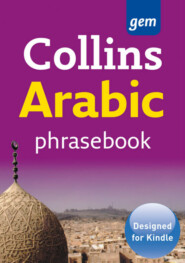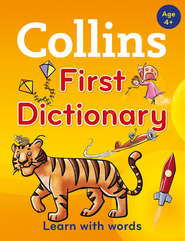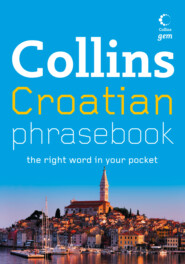По всем вопросам обращайтесь на: info@litportal.ru
(©) 2003-2025.
✖
Collins Primary Grammar, Punctuation and Spelling
Автор
Год написания книги
2019
Настройки чтения
Размер шрифта
Высота строк
Поля
A sentence can be one of four things.
Statement
This sentence tells you something. A statement usually starts with the subject of the sentence. It ends with a full stop:
Berlin is the capital of Germany.
I am going home now.
It’s raining.
Question
This sentence asks for information. It begins with a questioning word like what, who, which, where, when, how or why. It can also begin with a verb. It ends with a question mark:
What is your name?
Have you seen my keys?
Where is Mount Everest?
Command
This sentence gives orders or instructions. You call the verb used for commands ‘the imperative’. You usually put it at the start of the sentence. It can end with a full stop or, if you want to show that something is very important, an exclamation mark:
Give me the paper.
Come over here.
Stop right there!
If you give a polite command, the verb might not be at the start of the sentence:
Please stop talking.
Exclamation
This sentence expresses a strong feeling. It ends with an exclamation mark:
What a laugh!
You’re here at last!
I never want to see you again!
Sentence structure
There are different types of sentences which can be grouped by how the sentence is written.
Simple sentence
A simple sentence contains just one main clause:
Zoya threw the ball.
Today is my birthday.
Compound sentence
A compound sentence contains two or more main clauses joined by a conjunction:
Zoya threw the ball and Marion caught it.
Today is my birthday but my party is tomorrow.
Complex sentence
A complex sentence has a main clause and one or more subordinate clauses:
Zoya threw the ball to Marion, who was standing on the other side of the pitch.
Today is my birthday, although my party isn’t until tomorrow, which is a pity.
Parts of the sentence
Sentences contain a number of parts.
Subject
The subject is the person or thing that does the action in a sentence. It is a noun, a noun phrase or a pronoun. It comes before the verb.
Louise fell asleep.
Dogs don’t like fireworks.
The red car is parked on the other side of the road.
She threw a cushion across the room.
Verb
A sentence must have a verb or a verb phrase.
The man walks slowly up the hill.
Jessica fainted.
Adam is having a haircut.











